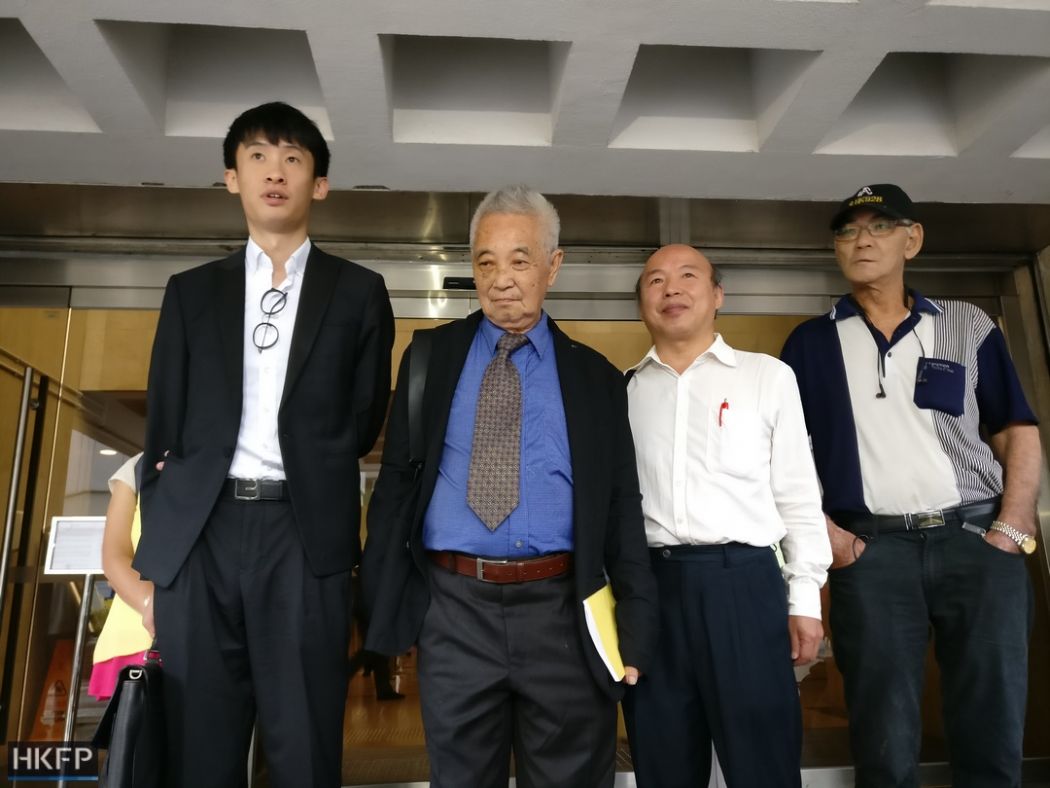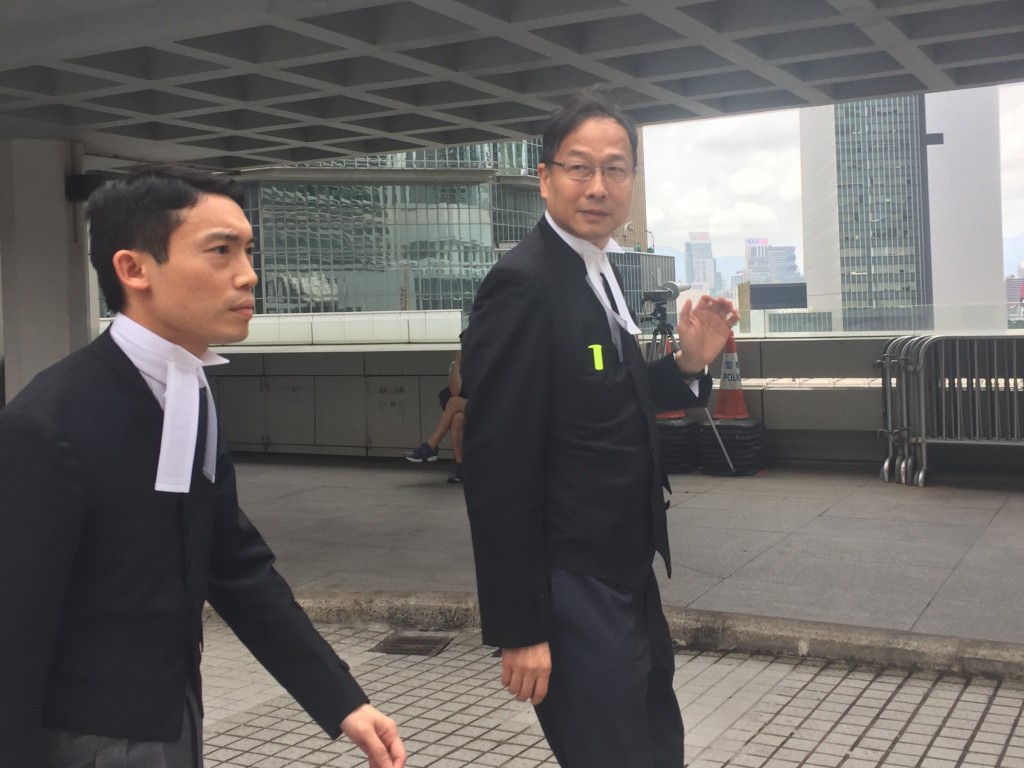Former lawmaker Baggio Leung and activist Kwok Cheuk-kin argued in court on Friday for an injunction against the controversial joint checkpoint arrangement for the upcoming Express Rail Link. The court will hand down its judgment next Tuesday.
Leung said the joint checkpoint arrangement was contrary to ten articles of the Basic Law, and that an interim injunction would be the “last resort for damage control.” Kwok said the Standing Committee of the National People’s Congress had no clear authority to approve the arrangement last December.

Under the joint checkpoint proposal, mainland law enforcement agents will conduct immigration and customs procedures at the new West Kowloon terminus, instead of at the border. The arrangement was intended for faster clearance so that passengers would not have to leave the train midway.
The proposal was passed by the legislature on June 14. But the Hong Kong Bar Association and the Hong Kong Law Society have raised questions over the plan’s constitutionality, as Hong Kong will effectively give up its jurisdiction across a quarter of the West Kowloon terminus.
Leung and Kwok are among five applicants who launched legal challenges against the joint checkpoint arrangement. In July, the High Court decided to hear all the applications together on October 30.
However, since the Express Rail link is expected to starting running in late September, Leung and Kwok applied for an interim injunction to suspend the joint checkpoint arrangement until a final ruling is made.

Leung and Kwok both appeared unrepresented at Friday’s hearing. Leung said his application for Legal Aid was refused on Wednesday, so he had no choice but to represent himself.
He argued that, on a literal level, the joint checkpoint arrangement contravened ten Basic Law articles, including articles 2, 11, 18 and 19. He also said that the arrangement would result in an actual infringement of his rights, even if he chose not to ride on the Express Rail Link personally.
He added that, even if the court incorrectly granted an injunction, the affected period would only be around one month. However, if the court did not grant an injunction – but he happened to win in October – there could be serious disruption to the Express Rail Link’s operation.
Kwok, also known as “King of Judicial Review,” said that the Express Rail Link could still operate without the joint checkpoint. The joint checkpoint plan effectively cedes Hong Kong territory, and the Standing Committee of the National People’s Congress had no authority to do that, he said.

Chief Executive Carrie Lam and the Secretary for Justice were named as defendants, and were represented in court on Friday by senior counsel Benjamin Yu.
Yu said that Leung and Kwok failed to satisfy the legal threshold for granting an interim injunction.
“If one is seeking to obtain a stay or an interim injunction on the execution of valid legislation, the burden rests on the applicant to show a strong prima facie case,” Yu said.
He also rejected the argument that the joint checkpoint arrangement would be the same as applying mainland law in Hong Kong. In its statement last December, the Bar Association said the government’s logic could result in absurd conclusions, such as mainland law applying to the High Court Building.

Yu said that the Bar Association’s hypothetical was “miles and miles away” from the joint checkpoint arrangement.
“The fundamental difference is context. If [mainland laws] apply only when a person is leaving Hong Kong and entering the mainland voluntarily, that’s a different type of fish,” he said.
Judge Anderson Chow will hand down his judgment next Tuesday.
